The primary target audience for this content consists of individuals interested in Toyota vehicles and related services in the Boise, Idaho region.
Are you curious about the engine size of a Toyota Corolla? The Toyota Corolla has seen a variety of engine sizes throughout its history. At millertoyota.net, we can guide you to the perfect model to suit your needs, whether you are looking for something fuel-efficient or something with a bit more power. We offer a wide selection of new and used Corollas, expert service, and personalized financing options.
1. What CC Engine Does a Toyota Corolla Typically Have?
The Toyota Corolla’s engine size, measured in cubic centimeters (cc), has varied across different generations and models. Typically, you’ll find Corollas with engine sizes ranging from 1300cc to 2000cc.
The engine size, or cubic capacity (cc), of a Toyota Corolla varies depending on the model year and trim level. In earlier models, you might find smaller engines, while newer Corollas often feature engines in the 1.8L (1798cc) to 2.0L (1998cc) range. For instance, the 2023 Toyota Corolla has a 2.0-liter Dynamic Force Engine, providing a balance of power and efficiency. The cc rating is a key indicator of the engine’s displacement, which directly relates to its power output and overall performance.
1.1. How Does Engine CC Affect a Car’s Performance?
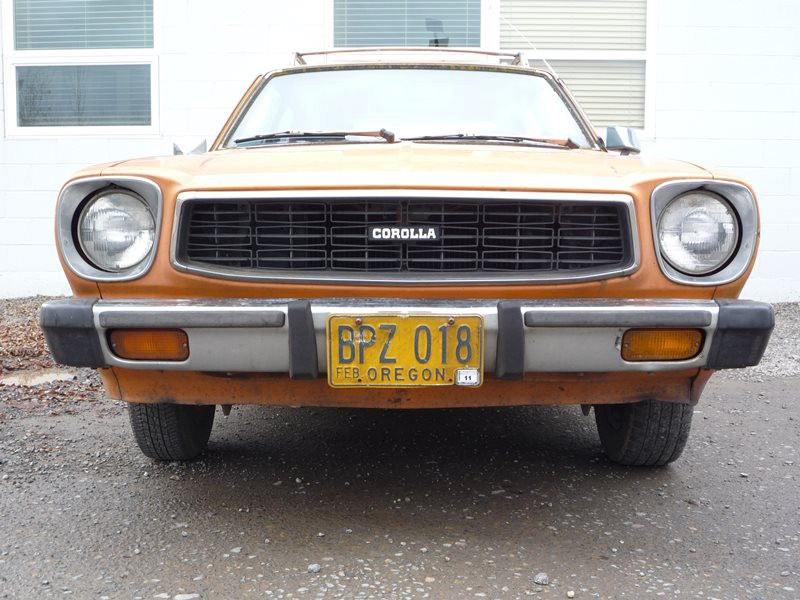 Toyota Corolla third-generation classic car in a parking lot
Toyota Corolla third-generation classic car in a parking lot
Engine CC directly impacts a car’s performance. Generally, a higher CC means more power and torque.
Larger engine displacement (CC) usually translates to increased horsepower and torque, allowing for quicker acceleration and improved towing capacity. However, larger engines also tend to consume more fuel. Smaller engines, while offering better fuel efficiency, may feel underpowered, especially when carrying heavy loads or driving uphill. The Toyota Corolla strikes a balance by offering engine options that cater to different driving needs, ensuring that drivers can choose between fuel efficiency and power.
1.2. What Are the Benefits of a Smaller CC Engine in a Corolla?
Smaller CC engines in a Corolla offer benefits such as improved fuel efficiency and reduced emissions.
According to the EPA, the 2023 Toyota Corolla with a 1.8-liter engine achieves up to 40 MPG on the highway, making it an excellent choice for budget-conscious drivers. Smaller engines typically have lower running costs due to reduced fuel consumption. They also tend to produce fewer emissions, contributing to a cleaner environment. In urban settings, where fuel efficiency is highly valued, a Corolla with a smaller engine can be an ideal option.
1.3. What Are the Benefits of a Larger CC Engine in a Corolla?
A larger CC engine in a Corolla provides more power and better acceleration, enhancing the driving experience.
A larger engine displacement, like the 2.0-liter engine in some Corolla models, provides more horsepower and torque. This results in quicker acceleration and a more responsive feel, especially useful for merging onto highways or overtaking other vehicles. While fuel efficiency might be slightly lower compared to smaller engines, the added power can make driving more enjoyable and confident. For those who prioritize performance over fuel economy, a Corolla with a larger engine is an excellent choice.
2. What Are the Different Engine Options Available for the Toyota Corolla?
The Toyota Corolla has had a variety of engine options over the years. These range from smaller, fuel-efficient engines to larger, more powerful ones.
Toyota has consistently offered various engine options for the Corolla to meet diverse consumer needs. Over the years, engine sizes have ranged from 1.3L to 2.0L, each designed to provide a unique blend of fuel efficiency and performance. The specific engine options available depend on the model year and trim level. Modern Corollas often come with advanced engine technologies like variable valve timing and direct injection, enhancing both power and efficiency.
2.1. What Is the Engine Size of the Latest Toyota Corolla Model?
 Front view of a Toyota Corolla parked on the street
Front view of a Toyota Corolla parked on the street
The latest Toyota Corolla model typically features a 1.8-liter or 2.0-liter engine, depending on the trim.
The 2024 Toyota Corolla offers two main engine choices: a 1.8-liter four-cylinder engine and a 2.0-liter Dynamic Force Engine. The 1.8-liter engine, often found in the hybrid models, prioritizes fuel efficiency. The 2.0-liter engine, available in higher trim levels, delivers more power and a sportier driving experience. Both engines incorporate modern technologies to optimize performance and fuel economy, ensuring that the Corolla remains a competitive and versatile vehicle.
2.2. How Has the Corolla’s Engine Size Evolved Over the Years?
The Corolla’s engine size has evolved to meet changing demands for fuel efficiency and power.
Over the decades, the Toyota Corolla has seen significant changes in engine technology and displacement. Early models featured smaller engines, often around 1.2L to 1.6L, designed for basic transportation. As technology advanced, Toyota introduced larger and more efficient engines. The trend has been toward engines that offer a balance of power and fuel economy, with innovations like variable valve timing and hybrid technology becoming increasingly common.
2.3. Are There Hybrid Versions of the Toyota Corolla, and What Is Their CC?
Yes, there are hybrid versions of the Toyota Corolla. They typically use a 1.8-liter engine paired with an electric motor.
The Toyota Corolla Hybrid combines a 1.8-liter four-cylinder engine with an electric motor to deliver exceptional fuel efficiency. The hybrid system intelligently manages the power distribution between the engine and the electric motor, optimizing fuel consumption and reducing emissions. According to Toyota’s official website, the Corolla Hybrid achieves up to 53 MPG in the city, making it one of the most fuel-efficient vehicles in its class.
3. How Does the Toyota Corolla’s Engine CC Compare to Other Compact Cars?
The Toyota Corolla’s engine CC is competitive compared to other compact cars, offering a good balance of power and efficiency.
When compared to other compact cars in its class, the Toyota Corolla’s engine displacement is quite competitive. Models like the Honda Civic, Mazda3, and Hyundai Elantra offer similar engine sizes, typically ranging from 1.8L to 2.5L. The Corolla stands out with its diverse engine options, including hybrid variants, providing consumers with a range of choices to suit their driving preferences.
3.1. Which Compact Cars Have Similar Engine Sizes to the Corolla?
Compact cars with similar engine sizes to the Corolla include the Honda Civic, Mazda3, and Hyundai Elantra.
The Honda Civic often comes with engine options ranging from 1.5L to 2.0L, similar to the Corolla. The Mazda3 typically offers engines between 2.0L and 2.5L, providing a slightly more powerful option. The Hyundai Elantra features engines around 2.0L as well. These models compete closely with the Corolla in terms of performance and fuel efficiency, making them popular choices in the compact car segment.
3.2. How Does the Corolla’s Engine Performance Compare to Its Competitors?
The Corolla’s engine performance is comparable to its competitors, with a focus on reliability and fuel efficiency.
The Toyota Corolla’s engine performance is often praised for its reliability and efficiency. While some competitors might offer slightly more horsepower, the Corolla stands out with its smooth power delivery and excellent fuel economy. The availability of hybrid models further enhances its appeal, providing a greener and more cost-effective driving experience. According to consumer reports, the Corolla consistently ranks high in terms of long-term reliability.
3.3. Are There Any Standout Features of the Corolla’s Engine Compared to Other Cars?
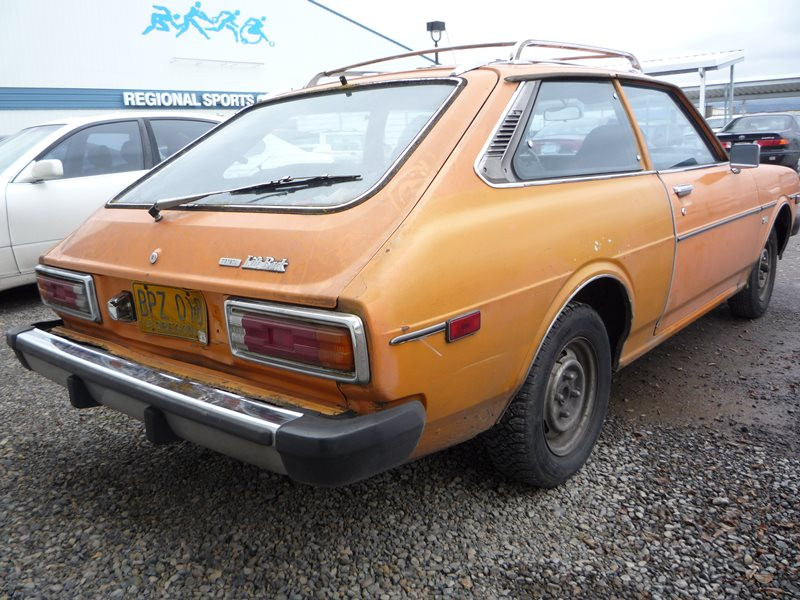 Close-up of the Toyota Corolla headlight and front grill
Close-up of the Toyota Corolla headlight and front grill
A standout feature of the Corolla’s engine is its availability in a hybrid version, offering superior fuel efficiency.
One of the most notable features of the Toyota Corolla is the availability of a hybrid powertrain. This allows the Corolla to achieve exceptional fuel economy, making it a standout choice for environmentally conscious drivers. Additionally, Toyota’s reputation for reliability ensures that the Corolla’s engine is built to last. The combination of fuel efficiency and reliability sets the Corolla apart from many of its competitors.
4. How to Find the Engine CC of a Specific Toyota Corolla Model?
Finding the engine CC of a specific Toyota Corolla model is straightforward. You can check the owner’s manual, look under the hood, or use online VIN decoders.
There are several ways to determine the engine CC of a specific Toyota Corolla model. The most reliable source is the owner’s manual, which provides detailed information about the vehicle’s specifications. Alternatively, you can often find the engine size listed on a sticker under the hood. Online VIN (Vehicle Identification Number) decoders are also helpful. By entering the VIN, you can access comprehensive information about the car, including its engine specifications.
4.1. Where Can I Find the Engine Specifications in the Owner’s Manual?
Engine specifications are usually located in the technical specifications section of the owner’s manual.
The engine specifications, including the CC, horsepower, and torque, can typically be found in the “Specifications” or “Technical Information” section of the owner’s manual. This section provides a comprehensive overview of the vehicle’s mechanical details. Refer to the index to quickly locate the relevant pages. The owner’s manual is an invaluable resource for understanding your Toyota Corolla’s features and capabilities.
4.2. How Can I Use the VIN to Find the Engine CC?
You can use the VIN with an online VIN decoder to find detailed information about the engine CC and other specs.
The VIN, a unique 17-character code assigned to each vehicle, can be used to retrieve detailed information about the car’s specifications. Numerous online VIN decoder tools are available. Simply enter the VIN into the decoder, and it will provide information such as the engine size, model year, and manufacturing details. These tools are particularly useful when purchasing a used car, as they help verify the vehicle’s specifications.
4.3. Is There a Way to Visually Identify the Engine Size Under the Hood?
While not always possible, some engines have labels or markings indicating their size.
Visually identifying the engine size under the hood can be challenging, as there are no universally standard markings. However, some engines may have labels or engravings indicating their displacement (e.g., “2.0L” or “1998cc”). These markings are usually located on the engine block or valve cover. Consulting the owner’s manual or a trusted mechanic is the most reliable way to confirm the engine size.
5. How Does the Engine CC Affect the Price and Insurance of a Toyota Corolla?
Engine CC can influence the price and insurance costs of a Toyota Corolla. Larger engines may increase the price, while insurance costs depend on various factors, including engine size.
The engine size of a Toyota Corolla can affect both its price and insurance costs. Models with larger engines or more advanced powertrains, like the hybrid, typically have a higher price tag due to increased performance and technology. Insurance companies also consider engine size as one factor in determining premiums. While larger engines may lead to slightly higher insurance costs, other factors such as the driver’s history, location, and coverage options play a more significant role.
5.1. Do Corollas With Larger Engines Cost More?
Yes, Corollas with larger engines typically cost more due to increased power and performance.
Toyota Corollas equipped with larger engines generally command a higher price than those with smaller engines. This is because larger engines provide more power and enhanced performance, which adds to the vehicle’s overall value. For example, the 2024 Toyota Corolla SE, with its 2.0-liter Dynamic Force Engine, is priced higher than the base L trim, which features a 1.8-liter engine.
5.2. How Does Engine Size Affect Insurance Premiums for a Corolla?
Larger engine sizes can sometimes lead to higher insurance premiums, but other factors also play a significant role.
Insurance premiums for a Toyota Corolla can be influenced by the engine size, though it’s not the only determining factor. Insurance companies assess risk based on a variety of elements, including the vehicle’s make and model, engine size, safety features, and the driver’s history. Generally, larger engines are associated with higher performance and potential repair costs, which can lead to slightly higher premiums. However, factors like the driver’s age, location, and coverage level have a more substantial impact on insurance rates.
5.3. Are Hybrid Corollas Cheaper to Insure?
Hybrid Corollas may sometimes be cheaper to insure due to their enhanced safety features and fuel efficiency.
Hybrid Toyota Corollas might benefit from slightly lower insurance rates compared to their non-hybrid counterparts. This is often due to the advanced safety features and fuel-efficient design of hybrid vehicles. Insurance companies view hybrids as lower-risk vehicles because they are typically driven more cautiously and are equipped with technologies that reduce the likelihood of accidents. However, the savings can vary depending on the insurance provider and the specific circumstances of the policyholder.
6. What Are the Most Common Engine Problems in Toyota Corollas?
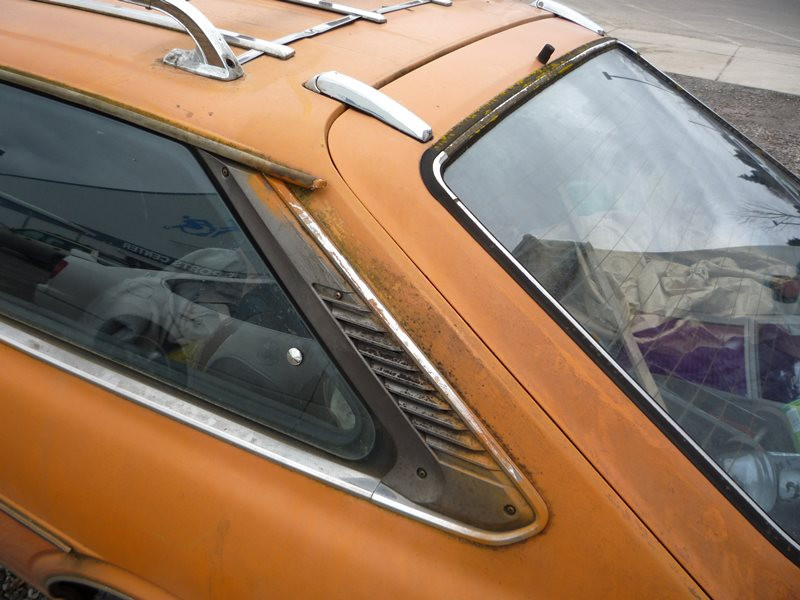 Side profile of a Toyota Corolla in a parking lot
Side profile of a Toyota Corolla in a parking lot
Common engine problems in Toyota Corollas include issues with the mass airflow sensor, oxygen sensor, and occasional oil leaks.
While Toyota Corollas are known for their reliability, they can experience some common engine problems. These include issues with the mass airflow sensor, which can affect engine performance, and oxygen sensor failures, which can impact fuel efficiency. Additionally, some Corollas may develop oil leaks over time. Regular maintenance and timely repairs can help prevent these issues and keep your Corolla running smoothly.
6.1. How Can I Prevent Engine Problems in My Corolla?
Regular maintenance, timely oil changes, and addressing minor issues promptly can prevent engine problems in your Corolla.
Preventing engine problems in your Toyota Corolla involves adhering to a regular maintenance schedule. This includes changing the oil and filters at the recommended intervals, inspecting and replacing spark plugs, and monitoring fluid levels. Addressing minor issues promptly, such as unusual noises or reduced performance, can prevent them from escalating into major repairs. Regular check-ups at a trusted service center like Miller Toyota can also help identify and resolve potential problems early on.
6.2. What Are the Signs of Engine Trouble in a Corolla?
Signs of engine trouble in a Corolla include unusual noises, decreased fuel efficiency, and the check engine light illuminating.
Several signs can indicate engine trouble in a Toyota Corolla. Unusual noises, such as knocking or hissing sounds, can be a sign of underlying issues. Decreased fuel efficiency, rough idling, and difficulty starting the engine are also potential indicators. The check engine light illuminating on the dashboard is a clear signal that something is amiss and requires attention. If you notice any of these symptoms, it’s essential to have your Corolla inspected by a qualified mechanic.
6.3. How Often Should I Get My Corolla’s Engine Serviced?
You should get your Corolla’s engine serviced according to the manufacturer’s recommended maintenance schedule, typically every 5,000 to 10,000 miles.
To keep your Toyota Corolla’s engine in optimal condition, it’s crucial to follow the manufacturer’s recommended maintenance schedule. Generally, this involves servicing the engine every 5,000 to 10,000 miles, depending on driving conditions and the type of oil used. Regular servicing includes oil and filter changes, inspections of belts and hoses, and checks of fluid levels. Adhering to this schedule can help prevent major engine problems and extend the life of your vehicle.
7. What Type of Engine Oil Is Recommended for a Toyota Corolla?
The recommended engine oil for a Toyota Corolla is typically a synthetic blend or full synthetic 0W-20 or 5W-30, depending on the model year.
Using the correct type of engine oil is vital for maintaining the health and performance of your Toyota Corolla’s engine. Toyota typically recommends using a synthetic blend or full synthetic oil with a viscosity grade of 0W-20 or 5W-30, depending on the model year and engine type. Consult your owner’s manual for the specific oil requirements for your Corolla. Synthetic oils offer better protection against wear and tear and can improve fuel efficiency compared to conventional oils.
7.1. Can I Use Synthetic Oil in My Toyota Corolla?
Yes, you can use synthetic oil in your Toyota Corolla; it often provides better protection and performance.
Using synthetic oil in your Toyota Corolla is highly recommended. Synthetic oils offer superior protection against engine wear, better resistance to high temperatures, and improved fuel efficiency compared to conventional oils. While synthetic oil may cost more upfront, its long-term benefits make it a worthwhile investment. Always ensure that the synthetic oil meets the specifications outlined in your owner’s manual.
7.2. What Happens if I Use the Wrong Type of Oil in My Corolla?
Using the wrong type of oil can lead to reduced engine performance, increased wear, and potential damage.
Using the incorrect type of oil in your Toyota Corolla can have adverse effects on engine performance and longevity. The wrong viscosity grade can lead to inadequate lubrication, increased friction, and accelerated wear. Additionally, using non-synthetic oil when synthetic is recommended can reduce the oil’s ability to protect against high temperatures and sludge buildup. To avoid these issues, always adhere to the oil specifications outlined in your owner’s manual.
7.3. How Often Should I Change the Oil in My Toyota Corolla?
You should change the oil in your Toyota Corolla every 5,000 to 10,000 miles, depending on the type of oil and your driving conditions.
The oil change frequency for your Toyota Corolla depends on several factors, including the type of oil used and your driving conditions. Generally, it’s recommended to change the oil every 5,000 to 7,500 miles when using conventional oil and every 7,500 to 10,000 miles when using synthetic oil. If you frequently drive in harsh conditions, such as stop-and-go traffic or extreme temperatures, you may need to change the oil more frequently.
8. Are There Any Performance Upgrades Available for the Toyota Corolla Engine?
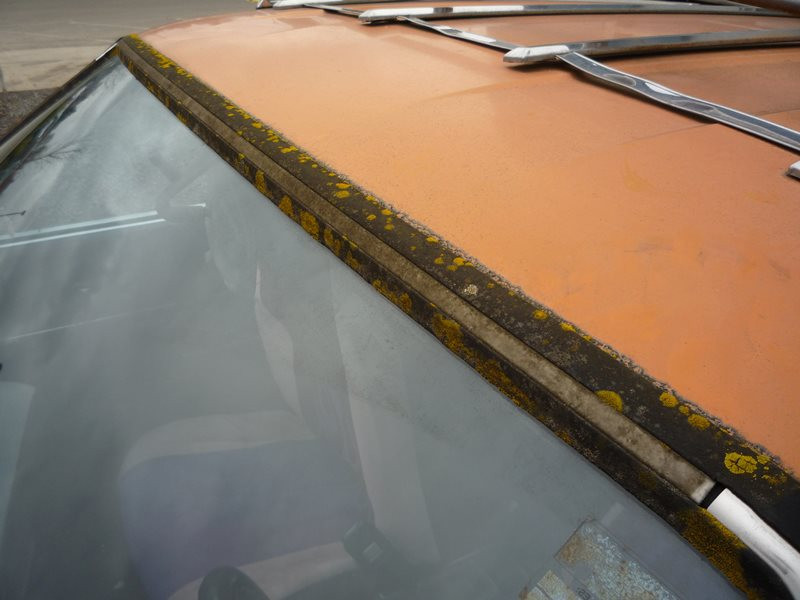 Toyota Corolla in a grassy field with trees in the background
Toyota Corolla in a grassy field with trees in the background
Yes, there are performance upgrades available for the Toyota Corolla engine, such as aftermarket air intakes and exhaust systems.
For those looking to enhance the performance of their Toyota Corolla, several aftermarket upgrades are available. These include performance air intakes, which improve airflow to the engine, and aftermarket exhaust systems, which reduce backpressure and increase horsepower. Other options include performance chips and ECU tuning, which optimize the engine’s fuel and ignition settings for increased power. However, it’s essential to ensure that any modifications comply with local regulations and don’t void your vehicle’s warranty.
8.1. What Aftermarket Parts Can Improve the Corolla’s Engine Performance?
Aftermarket parts that can improve the Corolla’s engine performance include air intakes, exhaust systems, and performance chips.
Several aftermarket parts can significantly improve the engine performance of a Toyota Corolla. Performance air intakes replace the factory air box with a less restrictive design, allowing more air to flow into the engine. Aftermarket exhaust systems reduce backpressure, enabling the engine to breathe more freely and produce more power. Performance chips and ECU tuning can optimize the engine’s settings for increased horsepower and torque.
8.2. Will Upgrading the Engine Void My Toyota Warranty?
Upgrading the engine with aftermarket parts may void your Toyota warranty if the parts cause damage to the vehicle.
Modifying your Toyota Corolla’s engine with aftermarket parts can potentially void your vehicle’s warranty. According to the Magnuson-Moss Warranty Act, a manufacturer cannot void your warranty simply because you’ve installed aftermarket parts. However, if the aftermarket parts cause damage to the vehicle, the manufacturer is not obligated to cover the repairs. It’s essential to carefully consider the potential impact on your warranty before making any modifications.
8.3. Are There Any Risks Associated With Engine Upgrades?
Risks associated with engine upgrades include potential damage to the engine, reduced fuel efficiency, and voided warranties.
While engine upgrades can enhance performance, they also come with potential risks. Improperly installed or incompatible parts can cause damage to the engine. Some modifications may reduce fuel efficiency or increase emissions. Additionally, engine upgrades can void your vehicle’s warranty if they cause damage. It’s crucial to research thoroughly and consult with experienced mechanics before making any modifications.
9. How Does the Toyota Corolla Engine Perform in Different Driving Conditions?
The Toyota Corolla engine performs well in various driving conditions, offering a balance of fuel efficiency and adequate power.
The Toyota Corolla’s engine is designed to perform reliably in diverse driving conditions. Whether you’re navigating city streets, cruising on the highway, or tackling hilly terrain, the Corolla provides a balanced driving experience. Its engines offer adequate power for everyday driving while maintaining excellent fuel efficiency. The availability of hybrid models further enhances its versatility, making it suitable for environmentally conscious drivers.
9.1. How Does the Corolla Handle City Driving?
The Corolla handles city driving well, offering good fuel efficiency and maneuverability.
In urban environments, the Toyota Corolla excels with its fuel efficiency and maneuverability. Its compact size makes it easy to navigate through traffic and park in tight spaces. The engine provides adequate power for stop-and-go driving, and the responsive steering enhances the overall driving experience. The Corolla’s fuel efficiency is particularly beneficial in the city, where frequent stops and starts can significantly impact fuel consumption.
9.2. How Does the Corolla Perform on the Highway?
The Corolla performs adequately on the highway, providing a comfortable ride and sufficient power for cruising.
On the highway, the Toyota Corolla offers a comfortable and stable ride. Its engine provides sufficient power for maintaining cruising speeds and overtaking other vehicles. The Corolla’s suspension is designed to absorb bumps and vibrations, ensuring a smooth driving experience. While it may not offer the same level of performance as sports cars, the Corolla is well-suited for long-distance highway travel.
9.3. Is the Corolla Suitable for Off-Road Driving?
The Corolla is not designed for off-road driving and is best suited for paved roads.
The Toyota Corolla is primarily designed for on-road driving and is not suitable for off-road conditions. Its low ground clearance and lack of four-wheel drive make it unsuitable for navigating rough terrain. Attempting to drive the Corolla off-road can result in damage to the vehicle’s undercarriage and suspension. For off-road adventures, it’s best to choose a vehicle specifically designed for that purpose.
10. Where Can I Get My Toyota Corolla Engine Serviced in Boise, Idaho?
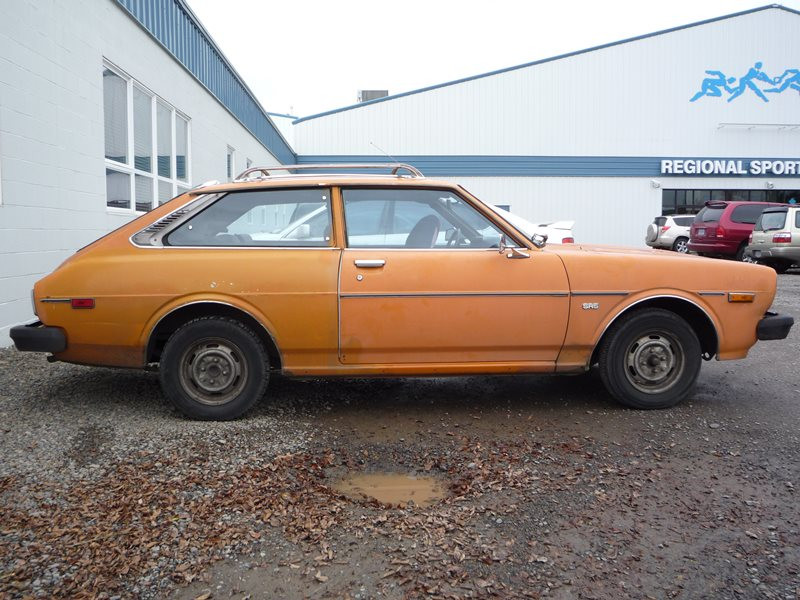 Classic Toyota Corolla in the daytime
Classic Toyota Corolla in the daytime
You can get your Toyota Corolla engine serviced at Miller Toyota in Boise, Idaho, offering expert maintenance and repair services.
For expert Toyota Corolla engine service in Boise, Idaho, look no further than Miller Toyota. Our certified technicians provide comprehensive maintenance and repair services, using genuine Toyota parts to ensure optimal performance and longevity. Whether you need an oil change, a tune-up, or major engine repairs, Miller Toyota is committed to providing exceptional service and customer satisfaction.
10.1. Why Choose Miller Toyota for Engine Service?
Choose Miller Toyota for engine service because of our certified technicians, genuine parts, and commitment to customer satisfaction.
Miller Toyota is the premier choice for servicing your Toyota Corolla’s engine in Boise, Idaho. Our certified technicians have extensive training and experience in servicing Toyota vehicles. We use genuine Toyota parts, which are specifically designed for your vehicle and ensure optimal performance and reliability. Additionally, we are committed to providing exceptional customer service, making your experience as convenient and hassle-free as possible.
10.2. What Services Does Miller Toyota Offer for Corolla Engines?
Miller Toyota offers a full range of services for Corolla engines, including oil changes, tune-ups, diagnostics, and repairs.
Miller Toyota provides a comprehensive range of services for Toyota Corolla engines. These include routine maintenance such as oil changes, filter replacements, and spark plug inspections. We also offer diagnostic services to identify and resolve any engine-related issues. Our technicians are equipped to handle major engine repairs, including cylinder head repairs, timing belt replacements, and complete engine overhauls.
10.3. How Can I Schedule an Engine Service Appointment at Miller Toyota?
You can schedule an engine service appointment at Miller Toyota by calling our service department or visiting our website.
Scheduling an engine service appointment at Miller Toyota is easy and convenient. You can call our service department directly to speak with a service advisor who can assist you in scheduling an appointment. Alternatively, you can visit our website at millertoyota.net and use our online scheduling tool. Simply select the desired service, date, and time, and we’ll confirm your appointment promptly.
Navigating the world of engine CCs for your Toyota Corolla doesn’t have to be complicated. Whether you are prioritizing fuel efficiency, power, or a blend of both, understanding your engine options is essential. At millertoyota.net, we are dedicated to providing you with all the information and services you need to make the best choice for your needs.
Ready to experience the reliability and performance of a Toyota Corolla? Visit millertoyota.net today to explore our extensive inventory, schedule a service appointment, and discover exclusive offers. Drive your dream car with confidence and peace of mind! For any inquiries, call us at +1 (208) 376-8888 or visit us at 208 N Maple Grove Rd, Boise, ID 83704, United States. Let Miller Toyota be your trusted partner on the road.
FAQ: Toyota Corolla Engine Size
1. What does “CC” mean in relation to car engines?
CC stands for cubic centimeters, a unit of measurement for the engine’s displacement or total volume of the cylinders.
2. Is a higher CC engine always better?
Not necessarily. A higher CC engine generally provides more power, but it may also consume more fuel.
3. What is the CC of the Toyota Corolla Hybrid engine?
The Toyota Corolla Hybrid typically uses a 1.8-liter engine paired with an electric motor. The 1.8-liter engine is equivalent to 1800cc.
4. How does engine size affect fuel economy in a Corolla?
Smaller engines generally offer better fuel economy, while larger engines may consume more fuel due to their increased power output.
5. Can I change the engine size of my Toyota Corolla?
Changing the engine size is a complex and costly process that may not be feasible or legal, depending on local regulations.
6. What is the most common engine size for the Toyota Corolla?
The most common engine sizes for the Toyota Corolla range from 1.8L (1798cc) to 2.0L (1998cc), depending on the model year and trim level.
7. Does the Toyota Corolla have a turbo engine option?
While some older models may have had turbo options, the current Toyota Corolla lineup primarily features naturally aspirated engines.
8. What are the benefits of a smaller engine in the Toyota Corolla?
Benefits include improved fuel efficiency, lower emissions, and reduced running costs.
9. How can I tell if my Toyota Corolla has engine problems?
Signs of engine trouble include unusual noises, decreased fuel efficiency, rough idling, and the check engine light illuminating.
10. Where can I find reliable information about Toyota Corolla engine specs?
You can find reliable information in the owner’s manual, on the Toyota website, or by visiting a trusted dealership like Miller Toyota.